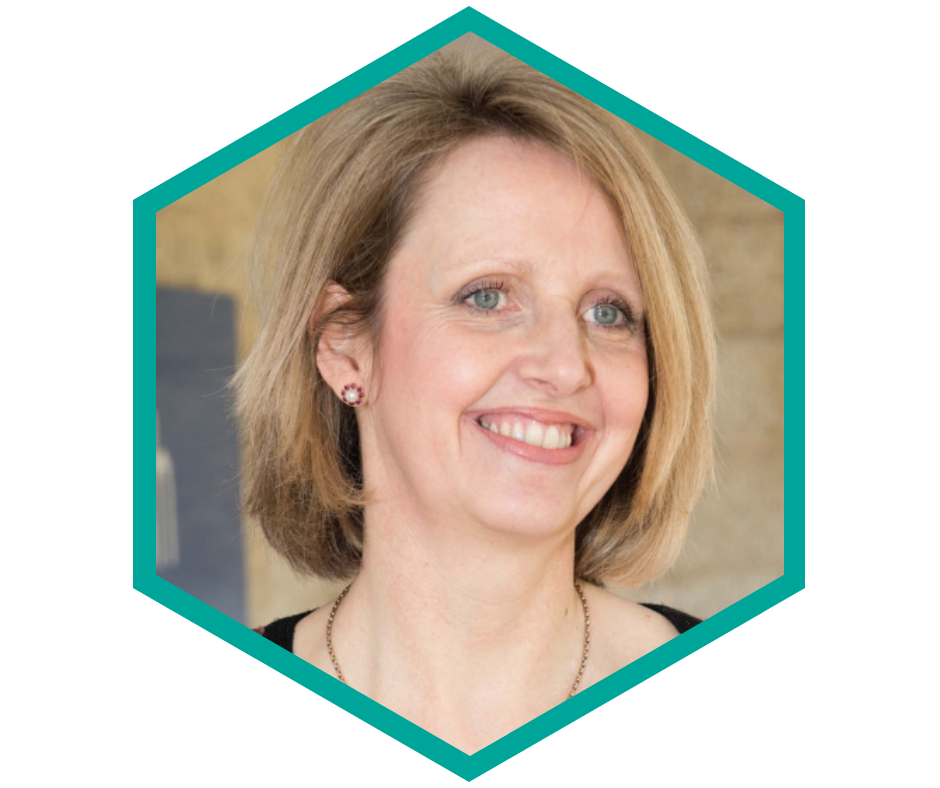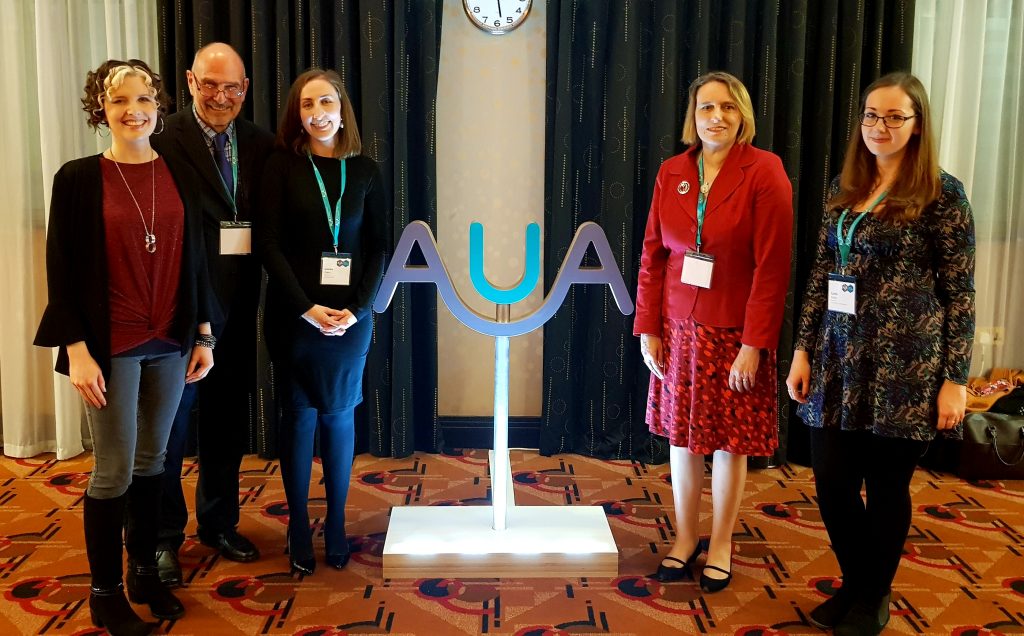Autumn Conference and Annual Lecture 2019
Member blogs and highlights
On Tuesday 26 November we had our AUA Autumn Conference and 22nd Annual Lecture. The theme of this year’s Conference was Sustainability, and we were honoured to have a whole host of professional and dedicated speakers to help bring our discussions and awareness forward.
Here we talk about just a few aspects of the day. If you were one of our many attendees, we hope you thoroughly enjoyed the day and if you would like to write a blog about your unique experience, please don’t hesitate to get in touch.

Director of Faculty Operations
University of Manchester
Opening keynote
Vikki Goddard reports on the opening Keynote session by Dr Louise Ellis | Director of Sustainability | University of Leeds
Louise Ellis gave us a fascinating overview of the approach the University of Leeds has been undertaking to embed sustainability across everything it does. Core to their vision of what a sustainable University looks like in 2050 is a clear commitment that this is part of what they are. There has been a fundamental shift over the last 12-18 months, driven by increasing concerns of the student body, together with a very strong drive from their Council to be bold and think differently.
This has led to the adoption of seven principles of sustainability by the Council, which are now embedded into the decisions that the University makes. These cover a wide definition of sustainability, reflecting on what the University is there for, as an anchor Institution within the City Region. As a result, there is a much greater focus on the value the University provides, rather than the impact that it has. Decisions are informed by these value sets, which encompass:
- Embedding sustainability through collaboration – breaking down silos, working together.
- Building knowledge and capacity – all staff understand what sustainability means to their role, all students able to critically engage with sustainability.
- Being a positive partner in society – working with a variety of organisations, especially third sector, to share knowledge and expertise, for example.
- Making the most of resources.
Louise went on to give us some fascinating examples of how the University is bringing these values to life- through initiatives such as the School Governors programme, providing a sustainable curriculum which all students access as a requirement, pledging to remove all single-use plastics by 2023 (and in their catering and conferences by 2020), and through the University being its own living lab, enabling trials of new ways of doing things sustainably.
What is really impressive about the Leeds approach is its boldness and embedded nature, we were told even the Director of Finance is bought in!

Centre Administration Manager
Brussels, University of Kent
Annual Lecture
Helena Torres reports on our Annual Lecture, given by Rosie Tressler OBE | CEO Student Minds.
AUA members attending this year’s Annual Lecture were treated to an inspiring and thought-provoking lecture from Rosie Tressler, CEO of the charity Student Minds. I was one of those lucky members to benefit from the talk which gave me a lot to take away and reflect on.
Right from the start, Rosie engaged the audience by asking us to turn to our neighbour and ask how our day had been so far – a task more associated with a workshop than a lecture but an indication of her warm and personal style of delivery.
Her talk began with the fact we are all too familiar with, that whatever the data source you look at, the number of students who feel that they are experiencing mental health difficulties is rising, as is the demand for support. After identifying a range of reasons for this increase, Rosie discussed what can be done by the sector to address it and focused on the idea of prevention: how good are universities at thinking about addressing the issues that can lead to poor mental health?
One example was looking at transition and what can be done to maximise the support for students navigating the move from home to university. Another was the role of members of staff and their ability to signpost, calling for an integrated and collaborative approach with wellbeing services. Curriculum design was another area, as evidence shows that ‘deep learning’, with less emphasis on results, can improve mental health.
The lecture ended with Rosie presenting the University Mental Health Charter due to be launched on 9th December. The Charter outlines a set of principles for delivering a whole university- approach to improving mental health and wellbeing outcomes for staff and students. She left us with the student perspective, telling us that the clear message from students is for the design of student support services to be a co-production between staff and students.
I could have continued listening to her for another hour. Maybe I should take my enthusiasm for listening to reflect on what aspects I can transfer to my organisation.

Zoe Fraser | Pa to the Senior Leadership Team | University of York
Second Keynote
Michelle Barton and Zoe Fraser report on the second Keynote session by Helena Tinker| Head of Environmental Sustainability | The Manchester Metropolitan University
Helena Tinker, from Manchester Metropolitan University, gave a keynote speech highlighting how important it is that we as universities should have a strong environmental vision and the strategy to support it. MMU went from a ‘People for Planet’ league table ranking of 91st place in 2007 to 1st place in 2013.
Their method consisted of setting 5-10 year goals, focusing on monitoring and reporting on their performance to keep them on track with their aims. They encouraged the piloting of new ideas and created a ‘living’ lab to test projects on, with an emphasis on being bold, adventurous and taking risks. To gain support from students and staff alike communication was vital to the success and they took a very collaborative approach by recruiting graduates and students who spread the word of the successes and progress made.
Helena presented a ‘recipe’ for success; ingredients including strong leadership and governance, with a pinch of well-defined strategy, a good measure of a collaborative approach and a spoonful of resilience.
MMU has launched a carbon literacy programme which educates staff and students about climate change, this is currently offered as an extra-curricular but they are looking to embed this into their current degree programmes. What raises this programme above the rest is its ability to be self sustainable by training the students themselves to be carbon literacy trainers. This pyramid-effect of training has improved the student experience by increasing employability and student confidence. That night Helena, along with the MMU environment team, won the ‘Tomorrows employers’ award from EAUC (The Alliance for Sustainability) for their ground-breaking work.
Despite their successes, MMU are determined to keep being trailblazers and have set an ambitious target to be zero carbon by 2038. The next proposal in the pipeline for the carbon literacy project is that the students will deliver the programme to the University’s Executive Board.
Delivered with true Yorkshire honesty, Helena’s speech certainly gave everyone in the room food for thought on how to create an ambitious environmental plan for the future and how to make it happen. We at York had a few take-home ideas and will certainly be looking at how to implement some of these in the future.
The AUA Invisible Grail Prize | Results

‘Thought Pieces’ for the HE Sector | Creating Connections
Over the last five years the AUA has awarded prizes for outstanding essays published in Perspectives: Policy and Practice in Higher Education. This year our competition is in partnership with a new sponsor, Invisible Grail, an organisation which provides consultancy and courses for HE professionals who care about the power of the written word and narrative. More information is available at the Invisible Grail website.

Winner: Lydia McGill
Thought piece title: Start-up company: how and why universities should nurture student friendships from day one
Prize: £1000
Runner up: Helen Matthews
Thought piece title: Fundamental interconnectedness: a holistic approach to process improvements
Prize: £250
Runner up: Esther Bray
Thought piece title: Creating your career, one connection at a time
Prize: £250
Runner up: David Gilani
Thought piece title: Creating connections: the role of universities in enhancing graduates’ social capital and challenging nepotism
Prize: £250
The winner and runners up from this year were informed of their awards by Louise Clifton of Invisible Grail and David Law just before the Annual Lecture.










0 comments on “Autumn Conference and Annual Lecture 2019”